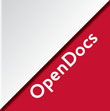Can Agricultural Research and Extension be used to Challenge the Processes of Exclusion and Marginalisation?

Date
2018-10-10Author
Rice, Michelle Jane
Apgar, Jane Marina
Schwarz, Anne-Maree
Saeni, Enly
Teioli, Helen
Metadata
Show full item recordImpact
Abstract
This paper examines if and how agricultural researchers and extension officers can see, understand and change processes that exclude some people and influence marginalisation. We used participatory action research (PAR) in a programme building sustainable farming practices for nutrition and income in Solomon Islands as our case study. Two qualitative PAR data streams were analysed: (i) documentation of community activities over three years including action planning, learning activities, training workshops, focus group discussions, key informant and informal interviews and (ii) documentation of the research teams’ own learning and reflection sessions. Agricultural research and learning activities facilitated through PAR can help researchers and extension officers see, understand and challenge processes that cause social exclusion and marginalisation and lead to inequitable access to agricultural opportunities. A combination of (i) starting with a collective vision; (ii) facilitating systematic reflection exercises; and (iii) having locally tuned facilitators creating safe spaces; makes processes of social exclusion tangible, discussable and ultimately actionable, illustrating the potential of the research and extension processes to facilitate social change in real time. The paper makes a contribution to the growing body of theory and literature on innovation systems and people-centred approaches to agricultural development, by highlighting the facilitation challenges and opportunities that can create more learning focused and power-aware agricultural programming. Our approach, examined in this paper, can improve implementation of policies such as the Solomon Islands Agriculture and Livestock Sector Policy (2015–2019), which aims for active participation of women and youth in agricultural development. Using a PAR approach to discover how agricultural research and extension activities can help transform the processes that cause social exclusion and create disadvantage and marginalisation.
Citation
Rice, M. J.; Apgar, J. M.; Schwarz, A .M.; Saeni, E. and Teioli, H. (2018) 'Can Agricultural Research and Extension be used to Challenge the Processes of Exclusion and Marginalisation?', The Journal of Agricultural Education and Extension: Volume 25, 2019 - Issue 1, 79-94,DOI
10.1080/1389224X.2018.1529606More details
https://www.tandfonline.com/doi/abs/10.1080/1389224X.2018.1529606https://doi.org/10.1080/1389224X.2018.1529606
Rights holder
Copyright © 2018 Informa UK LimitedCollections
- Journal Articles - External [429]
- IDS Research [1671]
